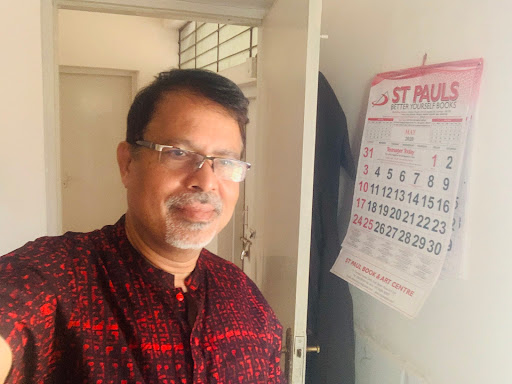Just a few days ago we celebrated the Feast of the Exaltation of the Holy Cross. Today, in the entire Franciscan world and especially on this Holy Mountain of La Verna, sanctified both by the presence of the Lord (who appeared in the form of a Seraph) and
St. Francis (the Stigmatized of La Verna), we celebrate the mystery of the Cross made visible in the flesh of the Poor Man of Assisi as the Apostle Paul stated, Henceforth let no man trouble me; for I bear on my body the marks of Jesus (Gal 6, 17). While St. Paul did bear on his body the scars of the torments suffered for Christ (cf. 2Cor 6, 4-5; 11, 23ss), St. Francis bore on his hands, feet, and side the signs of the Passion of Christ.
The biography of the St. Francis tells us how this singular prodigy of the Stigmata came about. Around the Feast of the Exaltation of the Holy Cross, just two years prior to his death, the Seraphic father went up on this mountain, in order to begin his Lenten fast which he was accustomed to do in honor of St. Michael, the Archangel.

Wishing ardently to know the will of the Lord and be wholly configured to Christ, he opened thrice the book of the Gospel in the name of the Holy Trinity. Because each time he opened it to the section on the Passion of the Lord Jesus, he prayed incessantly to feel on his body the pain of the Crucified. He, then, had a vision, which filled him with great joy and, at the same time, with a deep sorrow.

It was a vision of the Lord in the form of a Crucified Seraph who revealed that he (Francis), too, would be wholly transformed into the image of Christ Crucified. Once the vision was over, there appeared on the flesh of this friend of Christ the signs of the Passion of the Lord, namely, the nails which pierced through his hands and feet, and the wound on his side (cf. LMaj XIII, 1ss). .

Francis teaches us that you cannot be everything to others if you are not, at the same time, everything to the Lord. Likewise, one cannot be everything to the Lord unless one is not in constant search of one’s inner self. The Little Poor Man of Assisi teaches us the need to have, as part of one’s own existence, “a project of ecological life”, where commitment for the sake of others is coupled by the “vacare Deo”, that is, according to the wisdom of old, means to dedicate time for God and for oneself. St. Francis, who is a “mendicant of meaning” and a constant searcher of man, is also a constant searcher of God and His Will. St. Bonaventure points this out, portraying Francis as one who, for the purpose of constantly knowing himself, sought out and loved solitude.











No comments:
Post a Comment